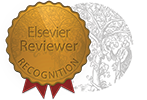Pre-publication peer review and commenting
- Function: Academic Karma is a peer-review network and platform for content-open preprint peer-review. Its a platform which aims to be used by all of these groups of people in conducting open peer review. Reviewers can use it to open-peer review any manuscript they have been invited to review (so long as the authors have deposited a preprint). Editors can use it to manage an open-peer review process for any manuscript they have been tasked with handling. Publishers can use it to identify papers which would be a good fit for their journal and solicit submission from authors. Authors can use it to crowd-source open peer review of their preprints
- Function controlled: Platform for peer review
- Web launch year: 2014
- Link
- Function: Journal with non-anonymous peer review
- Function controlled: Non-anonymous peer review (pre-publication)
- Web launch year: 1999
- Link
- Function: All articles published in BMJ Open will have been sent for external, open peer review. Reviewers will not be asked to judge importance or breadth of appeal. Upon publication, all previous versions of the manuscript will also be made available, as will the reviewers’ comments and authors’ replies to those comments. Post-publication peer review will also be possible via the Disqus comments, rapid responses and article level metrics, including the option for readers to rate the article positively or negatively. Research articles, protocols will be published under a Creative Commons licence.
- Function controlled: Innovative journal
- Web launch year: 2011
- Link
- Function: Documents that describe the research flow and that are submitted to journals before the research starts (“pre-registration”). Registered reports can be considered as a “Methodology” section of a paper, but more structured, detailed and separated from the paper. Not applicable to any field of science, but relevant for studies involving statistical analysis.
- Function controlled: Registered reports
- Web launch year: 2014
- Link
- Function: Blog discussing selected preprints in genetics. All posts will have comment sections where discussion of the papers will be welcome. A second type of post will be detailed comments on a preprint of particular interest to a contributor. These posts could take the style of a journal review, or may simply be some brief comments. We hope they will provide useful feedback to the authors of the preprint. Finally, there will be posts by authors of preprints in which they describe their work and place it in broader context.
- Function controlled: Paper commenting, dicussing or rating
- Web launch year: 2012
- Link
- Function: The “Peer Community in” (PCI) is a non-profit scientific organization that aims to create specific communities of researchers reviewing and recommending, for free, unpublished preprints in their field (i.e. unpublished articles deposited on open online archives like arXiv.org and bioRxiv.org). To a lesser extent, they may also recommend postprints (i.e. articles already published in journals). Reviews and recommendations (for preprints) and recommendations (for postprints) are freely available for consultation. Recommendations are signed by the recommenders. Reviews may be signed if the reviewers agree to do so.
- Function controlled:
- Web launch year: 2017
- Link
- Function: Independent peer review service. Peerage of Science provides quantitative, peer-reviewed, externally verifiable measure of your expertise in the scientific fields you provide reviews for. You can show your activity (the number of reviews done) and your average Peerage Essay Quality (PEQ) in your Profile – and in your CV. While you always have the option to remain anonymous, you will also have the option to publish commentary papers based on your reviews, in Proceedings of Peerage of Science, or other journals (more information about Proceedings of Peerage of Science will be available soon). As peer reviewed texts, these commentaries are short citable articles in their own right and contribute to your CV. Peerage of Science even envisions the most capable
Peerage of Science offers reviewing opportunities, not reviewing requests. You can discover manuscripts of interest by automated e-mail alerts set for specific subject categories or keywords, or via Referrals from your colleagues. Review reports are max. 1000 words following a standardized format.
- Function controlled: Journal independent peer review
- Web launch year: 2010
- Link
- Function: On PREreview you can collaboratively write reviews of preprints following discussion at Preprint Journal Clubs (JC).
- Function controlled:
- Web launch year: 2017
- Link
- Function: Peer Review Evaluation (PRE) is a transparency service from AAAS that showcases the strength of your peer review process. PRE integrates with your existing workflows and technology platforms to analyze your manuscript tracking system data and tag qualifying articles with a PRE award badge to show readers which articles have been peer reviewed.
- Function controlled: Peer review evaluation
- Web launch year: 2014
- Link
- Function: Crowdsourced validation of experimental results. Science Exchange provides a platform to rapidly and cost effectively validate studies, methods and reagents via independent replication of key experimental results. This allows the identification of high quality reproducible research and reagents. Studies, protocols or reagents can be submitted for independent validation by expert labs in the Science Exchange network.
- Function controlled: Reproducibility
- Web launch year: 2012
- Link
- Function: crediting peer review activity. Easily import, verify, and store a record of every peer review you perform and every manuscript you handle as an editor, for any journal in the world, in full compliance with all editorial policies.
- Function controlled: Peer review registration
- Web launch year: 2013
- Link
- Function: crediting peer review activity. Upon the completion of a review for a paper or an article, reviewers can claim redeemable credits and generate a Reviewer Index on our website. The Index reflects your activity as a reviewer, hence, your contribution for the advancement of science. You can showcase it in your resume or for grants request. The credits you accumulate will be redeemable for tangible rewards.
- Function controlled: Peer review registration
- Web launch year: 2016
- Link
- Function: Publicly crediting peer review for Elsevier reviewers, open for PR from all journals. We want to make it easier for you to gain recognition for the time, energy and expertise that you contribute in your vital role as a peer reviewer.
Creating your reviewer page is simple. Reviews for Elsevier journals are automatically displayed and verified. Adding review claims for non-Elsevier journals (which will require publisher verification) is extremely easy. And we take your anonymity as a reviewer seriously -- You choose what you want to show and share.
- Function controlled: Peer review registration
- Web launch year: 2015
- Link
- Function: Documenting peer review for Elsevier journals. The Reviewer Recognition platform provides participating reviewers with a personalized profile page wherein their 5-year Elsevier journal peer review history is documented.On the Reviewer Recognition Platform reviewers can collect their review certificates and are offered discounts for Elsevier services. In addition, reviewers can download a variety of certificates and a yearly review activity report.
- Function controlled: Peer review registration
- Web launch year: 2014
- Link
- Function: Independent peer review service. Rubriq is Research Square’s rigorous, rapid peer review system, developed in conjunction with publishers, journal editors, and researchers to save effort and speed up the publishing process. With years of experience and thousands of papers completed, our standardized Rubriq report and reviewer matching system allow us to provide top-quality peer review from highly qualified researchers in just two weeks.
- Function controlled: Journal independent peer review
- Web launch year: 2012
- Link
- Function: SciPost is a complete online publication portal managed by and for scientists. Preprint handling and circulation occurs through the well-established arXiv; the rest of the publication process, from peer refereeing through publication all the way to post-publication commenting, is offered by SciPost.
- Function controlled: Innovative journal
- Web launch year: 2016
- Link
- Function: Rate and comment on ArXiV papers.Open sourced, free and open access scientific collaboration network.
- Function controlled: Paper commenting, dicussing or rating
- Web launch year: 2007
- Link
- Function: The Self-Journals of Science (SJS) is a free, non-profit, multidisciplinary platform for the communication of science, whose primary goal is to provide an evaluation system based on scientists’ judgment and collective intelligence, rather than bibliometrics. It provides each scientist with a self-journal, a novel and powerful curation tool for sharing their analysis of the scientific output in a structured and comprehensive way. Individual articles can be uploaded and automatically embedded within a novel open peer-review interface, where they become part of a global and unmediated conversation (here "open" is taken to mean public + non-anonymous + open to all authenticated scholars + open in time). SJS seeks to offer a new model of scientific communication, where the publishing functions are managed collectively by a community of empowered scientists acting as researchers, reviewers and evaluators of science. By cutting out the middlemen, scientific publication becomes free, both in the sense of "free of charge" and free speech.
- Function controlled: Platform for open peer review
- Web launch year: 2015
- Link
- Function: Voting & discussion on ArxiV papers for >200 institutions. Vox Charta is a clone of arXiv used primarily for astronomy and astrophysics paper discussions. Users of this website have the ability to vote for papers they would like to talk about at the next discussion session. All papers that received votes since the previous discussion appear in an “agenda” at the top of the main page, sorted by the number of votes each paper receives. A copy of this agenda is e-mailed out to the department shortly before the discussion itself.
- Function controlled: Paper commenting, dicussing or rating
- Web launch year: 2009
- Link























